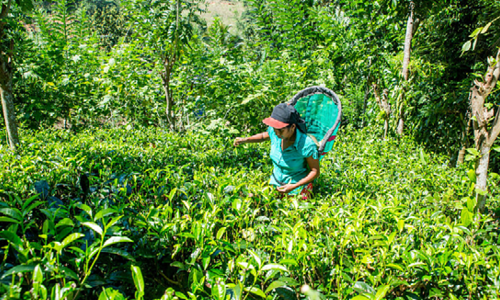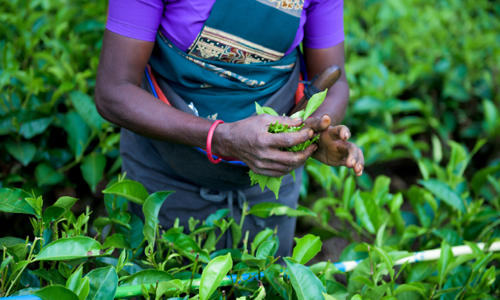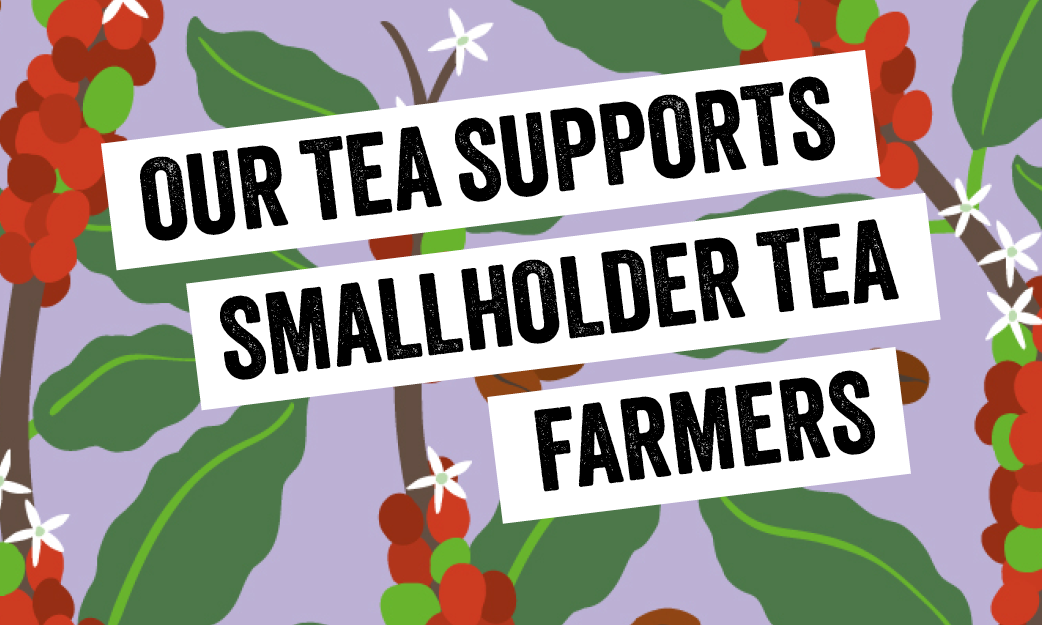Tea has been a longstanding tradition in England, with Brits drinking 165 million cups of tea a day, a staggering 60.2 billion a year!
The Fairtrade Foundation report It’s the second most popular drink in the world (water takes the number one spot) with an estimated 70,000 cups drunk every second!
Behind every cup of tea we enjoy are the tea farmers, who often struggle to get a fair deal, meaning tea comes at a very real and human cost.

According to the Fairtrade Foundation “One in four children in Kenya’s tea and coffee-growing regions are malnourished, leading to stunted growth. One in 10 children in the tea-growing regions of Malawi die before their fifth birthday.”
How is tea farmed?
This content was originally published on The Fairtrade Foundation
“Tea is produced on large plantations or estates and picked by employed workers. It is also grown on small plots of land by small-scale farmers who sell their freshly-plucked green leaf to plantations or tea factories for processing into black tea.
In Africa, the average small-scale farmer’s farm is less than half the size of a football pitch. Tea farmers face the challenge of low and fluctuating prices for the green leaf they sell, and a lack of power in a tea supply chain dominated by large companies.
On tea estates, the challenges for workers vary depending on the origin. Workers may face low wages, long working hours and a difficult relationship with estate management. Often it is the management they depend on for basic needs such as housing, healthcare, access to water and even education for their children.”


How can Fairtrade make things better?
This content was originally published on The Fairtrade Foundation
Fairtrade Standards for tea include an origin-specific Fairtrade Minimum Price, which acts as a safety net against the unpredictable market.
Over 390,400 farmers and workers across 12 countries are involved in Fairtrade tea production. Over 8,300 tonnes of tea was sold as Fairtrade in 2020. This means certified farmers and workers earned £3.9 million in Fairtrade Premium in 2020.
On plantations, workers invest over 80% of their Premium in services for workers and their families and almost 11% in community services such as housing, education and healthcare. However, Fairtrade certified organisations sell only around 7 percent of their tea on Fairtrade terms – this means they don’t benefit from being certified to the extent that they could.
When UK shoppers choose Fairtrade tea, tea producers sell more of their product on Fairtrade terms, and can work towards a more sustainable livelihood for themselves and their families.

